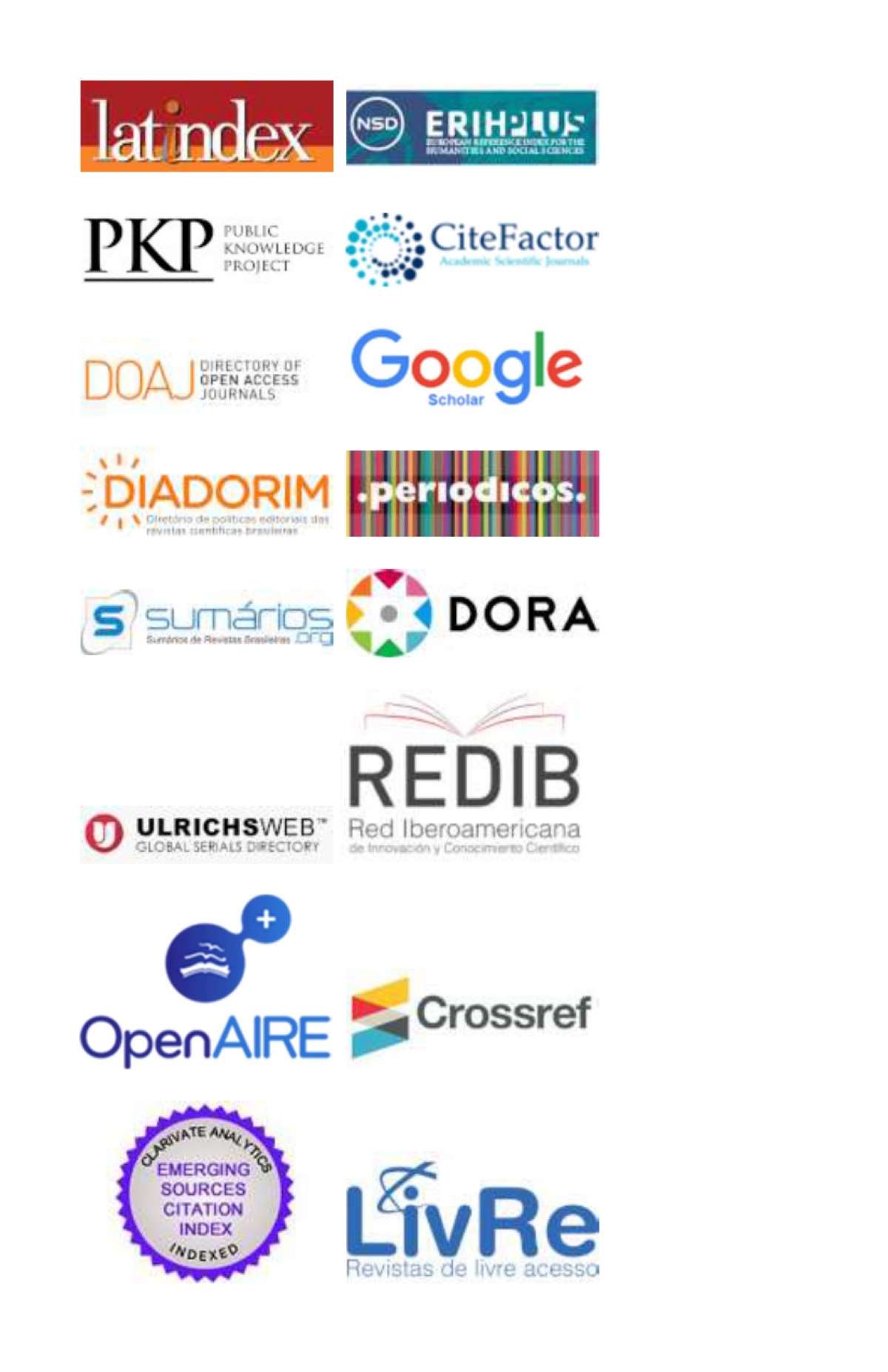DECISÕES EM COLEGIADO REFLETEM UMA RAZÃO COLETIVA
UMA ANÁLISE SOBRE A EPISTEMOLOGIA SOCIAL E INSTITUCIONAL APLICADA À RATIO DECIDENDI NO STF
DOI:
https://doi.org/10.21783/rei.v8i3.730Keywords:
STF, Decisões colegiadas, Epistemologia social, Ratio decidendiAbstract
In this article, based on bibliographic reviews, we deal with two problems that are combined, namely, the supposed collective disunity and rational inconsistencies in the STF. Our objective is to show that although there is a dispersion of reasons in the arguments of the ministers of our constitutional court, this does not become a complete obstacle to the collective emergence of decisions that take place in the seriatim model and by aggregation of judgments. Although we point out this possibility, we also conclude that the ratio de decidendi of an argument is somewhat indeterminate. We argue that social and institutional epistemology already has theoretical conditions to make it clear that the institutional view of the STF is given by a dictatorial function and by delegation of reasons
Downloads
References
ALMEIDA, Danilo dos Santos; BOGOSSIAN, André Martins. “Nos termos do voto do
relator”: considerações acerca da fundamentação coletiva nos acórdãos do STF. Revista
Estudos Institucionais, vol. 2, n.1, p. 264-297, jan./jun. 2016.
ALMEIDA, Danilo dos Santos; Struchiner, Noel. As Razões Ocultas do Supremo Tribunal
Federal: um estudo sobre agenciamento de grupo na Corte. Rio de Janeiro, 2016. 155p. Tese
de Doutorado – Departamento de Direito. Pontifícia Universidade Católica do Rio de Janeiro.
ARGUELHES, Diego Werneck, FALCÃO, Joaquim, RECONDO, Felipe. Onze Supremos: o
Supremo em 2016. Belo Horizonte: Letramento, 2017.
ARROW, Kenneth Joseph. Social choice and individual values. New York: Jon Wiley &
Sons, 1963.
BARROSO, Luís Roberto. Constituição, democracia e supremacia judicial: direito e política
no Brasil contemporâneo. Revista jurídica da presidência, v. 12, n. 96, p. 05-43, 2010.
BRANDO, Marcelo Santini; LEITE, Fábio Carvalho. Dispersão de fundamentos no Supremo
Tribunal Federal. Revista Direito, Estado e Sociedade, Rio de Janeiro, n. 48, p. 139-166,
jan./jun. 2016.
BUSTAMANTE, Thomas. Uma teoria normativa do precedente judicial: o peso da
jurisprudência na argumentação jurídica. Rio de Janeiro, 2007. p. 225 Tese de Doutorado
Departamento de Direito. Pontifícia Universidade Católica do Rio de Janeiro.
GILBERT, Margaret. Belief and Acceptance as Features of Groups. Protosociology, v. 16, p.
69, 2002.
GILBERT, Margaret. Joint Commitment: how we make the social world. Oxford: OUP, 2014.
On Social Facts. Routledge, 1989.
GILBERT, Margaret. Modeling Collective Belief . Synthese , v. 73, n. 1, p. 185 204, 1987.
GOLDMAN, Alvin. Social Epistemology. In ZALTA, E. N. (Org.). The Stanford
Encyclopedia of Philosophy Summer 2006 ed. [S.l: s.n.], 2006.
GOLDMAN, A.; WHITCOMB, D. (ed). Group Knowledge and Group Rationality. Social
Epistemology: Essential Readings. Oxford: Oxford University, 2011. p. 221-241.
KELEMEN, Katalin. Dissenting Opinions in Constitutional Courts. German Law Review, vol.
, n. 8, 2013.
KORNHAUSER, Lewis A.; SAGER, Lawrence G. Unpacking the court. The Yale Law
Journal, Danvers, vol. 96, n. 1, p. 82-117. 1986.
LEVI, Isaac.On the Seriousness of Mistakes. Philosophy of Science, v. 29, n. 1, p. 47 65,
LIST, C. Group Knowledge and Group Rationality: A Judgment Aggregation Perspective.
GOLDMAN, A. WHITCOMB, D. (eds). Social Epistemology: Essential Readings. Oxford:
Oxford University Press, 2011. P. 221-241.
LIST, Christian; PETTIT, Philip. Group Agency: the possibility, design, and status of
corporate agents. Oxford: OUP, 2011
LIST, Christian. The theory of judgement aggregation: an introductory review. Synthese, Vol.
, Issue 1, 2012, pp. 186-187. A tradução foi retirada em RUIVO, Agregação de juízo na
epistemologia social.
MENDES, Conrado Hübner. Is it All About the Last Word? Deliberative Separation of
Powers 1. Legisprudence, Vol. 3, No. 1, pp. 69-110, 2009a. SSRN:
http://ssrn.com/abstract=1911822. Doi: http://dx.doi. org/10.2139/ssrn.1911822.
RAWLS, John. Political liberalism. New York: Columbia University Press, 1993, p. 231.
RIGGS, Wayne D. Epistemic Risk and Relativism . Acta Analytica, v. 23, n. 1, p. 1 8, 2008.
ROMANELLI, Sandro Luís Tomás Ballande. Votos dissonantes: a desarmonia nas decisões
colegiadas do Supremo Tribunal Federal. Revista Novos Estudos Jurídicos - Eletrônica, Vol.
, n. 1 - jan-abr, 2020.
RUIVO, JOSÉ LEONARDO ANNUNZIATO. Crença de grupo: Uma introdução à
epistemologia coletiva. Porto Alegre, 2017. 102p. Tese de Doutorado - Departamento de
Filosofia. Universidade Federal do Rio Grande do Sul.
RUIVO, José Leonardo; CHICHOSKI, Luiz Paulo. Agregação de Juízo na Epistemologia
Social: a proposta de Christian List e Philip Pettit. Trabalho apresentado no GT
“Epistemologia Analítica”, p. 7-8.
SCHAUER, Frederick. Thinking Like a Lawyer. Cambridge: Harvard University Press, 2009.
Silva, V. A. da. (2009). O STF e o controle de constitucionalidade: deliberação, diálogo e
razão pública. Revista de Direito Administrativo, v. 250, p. 197–227.
https://doi.org/10.12660/rda.v250.2009.4144.
SILVA, Virgílio Afonso da. De quem diverge os divergentes: os votos vencidos no Supremo
Tribunal Federal. Direito, Estado e Sociedade, n. 47 p. 205-225 jul/dez 2015.
SILVA, Virgílio Afonso da. Deciding without deliberating. International Journal of
Constitutional Law, vol. 11, n. 3, p. 557-584, jul./sept. 2013.
SILVA, Virgílio Afonso. Um Voto Qualquer”? o papel do ministro relator na deliberação no
Supremo Tribunal Federal. Revista de Estudos Institucionais, vol. 1, n. 1, 2015a, p. 184.
TUOMELA. RAIMO. Group Knowledge Analyzed. Episteme, v. 1, n. 2, p. 109 127, 2004.
TUOMELA, RAIMO. Group Beliefs. Synthese, v. 9 1, n. 3, p. 285 318, 1992.
Downloads
Published
Versions
- 2023-01-07 (2)
- 2022-12-31 (1)
How to Cite
Issue
Section
License
Copyright (c) 2022 Victor Yudi Ichihara Sado, Cláudio Araujo Reis , André Pires Gontijo

This work is licensed under a Creative Commons Attribution-NonCommercial 4.0 International License.
The authors hold their copyright and concede to the JOURNAL OF INSTITUTIONAL STUDIES the right to the first publication, in accordance with the Creative Commons Attribution license.
Authors are strongly encouraged to publish their manuscripts in other medias, such as institutional repositories and personal pages. The Journal only requires the credits of the first publication.






